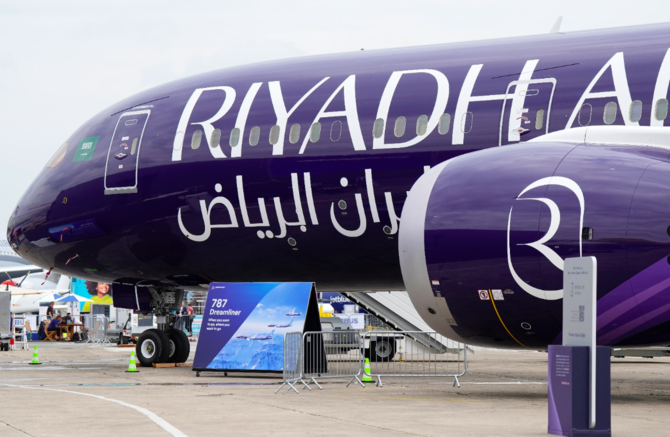RIYADH: Riyadh Air, Saudi Arabia’s newly established national carrier, has signed a memorandum of understanding with Colleges of Excellence to facilitate the training and skill enhancement of local Saudi professionals in the aviation industry, according to a press statement.
The MoU was signed by Riyadh Air’s CEO, Tony Douglas and Ayman Mustafa Al-Abdullah, CEO of CoE.
Under the deal, both parties will work together to carry out a vocational training program for Saudi talents, including specialized courses for females pursuing careers in engineering and maintenance.
“We are thrilled to partner with the Colleges of Excellence to support the launch of the specialized aviation programs. By providing students with hands-on experience and specialized training, we aim to bridge the gap between education and industry requirements,” said Douglas.
CoE, an institution established by the Vocational Training Corp. in Saudi Arabia, is entrusted with providing training services to nurture local talent.
According to the MoU, specialized sessions will be given to students within the aviation sector, which also include the first training program for Saudi women in aircraft maintenance and engineering.
Douglas added: “We are particularly excited about the opportunities this program will create for women in technical engineering and maintenance, paving the way for a more diverse and inclusive aviation workforce.”
The establishment of Riyadh Air is viewed as a significant step by the Saudi Arabian government in its pursuit to transform into a tourism hub, in line with the economic diversification goals outlined in Vision 2030.
Scheduled to begin operations in 2025, Riyadh Air is planning to serve over 100 destinations by 2030.
Earlier in June, during the Paris Air Show, Douglas told Arab News that Riyadh would be a full-service carrier, focusing on enhancing the guest experience with the current level of digitalization.
“We’ll be the world’s first-ever true digital native. We will make sure that the way people usually interact with many things they do in life through their mobile phone or handheld device, that’s how they will be able to operate with Riyadh Air,” he explained.















